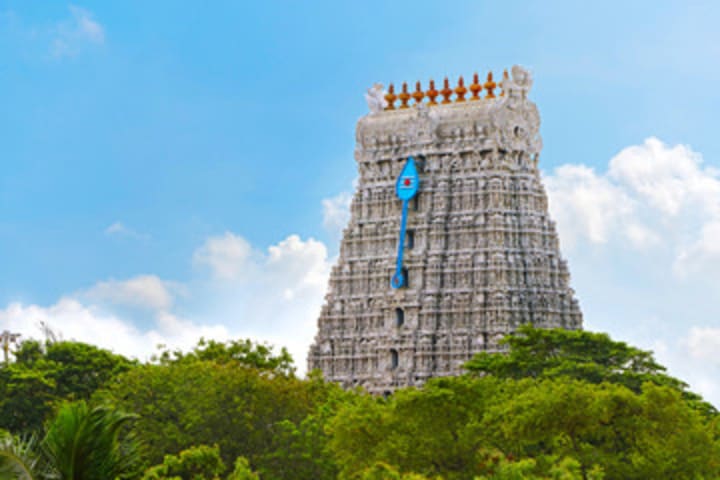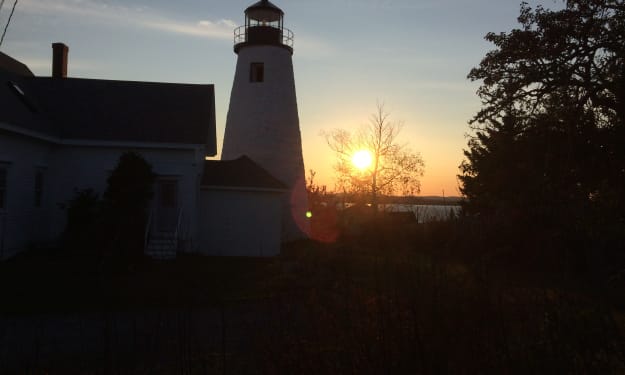Exploring the Rich Heritage of Thiruchendur
"Where Devotion Meets the Waves"

The Thiruchendur Murugan Temple, a well-known Hindu pilgrimage destination devoted to Lord Murugan, is intimately linked to the town's history. An outline of Thiruchendur's historical significance is provided below:

Ancient Origins: Thiruchendur appears to have been a significant coastal town based on historical records. The area is mentioned in a number of ancient writings and books.
Thiruchendur Murugan Temple: It is thought that the Thiruchendur Murugan Temple was built in the seventeenth century. But over time, the temple has experienced alterations and restorations. The six-faced god Thiruchendur Murugan, popularly known as Shanmukha, is housed in the temple's sanctum sanctorum.
Significance in Hindu Mythology: Thiruchendur is regarded as one of Lord Murugan's six principal abodes, or Arupadaiveedu. In Hindu mythology, the temple is very important, and stories about Lord Murugan's battles over demons are said to have been connected to it.
Maritime Importance: Thiruchendur has a long history as a maritime center due to its coastline location. It probably had something to do with trade and seafaring activity back in antiquity.
Cultural and Religious Heritage: The town and the temple are essential components of the area's rich cultural and religious legacy. The festivals, ceremonies, and architecture of the temples provide color to Tamil Nadu's rich Hindu heritage.
Kanda Sashti Festival: Held in the Thiruchendur Murugan Temple every year, this festival is a big occasion that attracts followers from all across the nation. It is celebrated with lavish processions and special prayers to honor Lord Murugan's triumph over the demon Surapadman.

Thiruchendur's significance stems from its association with Lord Murugan worship and the rich cultural and religious activities of the Thiruchendur Murugan Temple, even though the town's precise historical history may not be well documented.
In Hinduism, Thiruchendur Murugan is a god who is especially revered in Tamil Nadu, India. He is a manifestation of Lord Murugan, who goes by the names Kartikeya and Subramanya. Lord Shiva and Goddess Parvati are said to be their parents. The well-known Thiruchendur Murugan Temple is the main attraction of Thiruchendur, a seaside town in Tamil Nadu's Thoothukudi district.
One of Lord Murugan's six abodes (Arupadaiveedu), the Thiruchendur Murugan Temple is thought to have been built in the seventeenth century. The temple is in a beautiful setting because it is perched on the Bay of Bengal's beach. It is a popular pilgrimage location that draws followers from all around the nation.
Thiruchendur Murugan, the presiding deity, is frequently referred to as Shanmukha and is portrayed with six faces. The temple attracts sizable numbers of devotees, particularly during the yearly celebration known as "Kanda Sashti," thanks to its numerous Lord Murugan-focused ceremonies, festivals, and processions.
Worshipping Thiruchendur Murugan is thought to bestow benefits, protection, and the elimination of impediments from one's life. The temple adds to the rich fabric of Hindu customs in the area and is significant both religiously and culturally.
Given that "sea" can apply to a variety of concepts, it appears that your question is somewhat general. The following are some various viewpoints on the term "sea":

From a geographical standpoint:
The ocean, often known as the sea, is a vast body of saltwater that makes up a sizable section of the surface of the planet. The Pacific, Atlantic, Indian, Southern, and Arctic oceans are among the oceans.
The significance of ecology
An essential part of the Earth's ecosystem is the oceans. They support a wide variety of marine life, including as fish, animals, and other creatures. Oceans are essential to the water cycle and also influence global weather patterns.
Human Communication:
Throughout history, seas and oceans have been essential to human civilizations. They have impacted cultural customs and practices in coastal areas, as well as acting as food supplies and commercial routes.
Leisure and Travel:
The sea is a popular place for people to go swimming, surfing, sailing, and snorkeling. Tourists looking for beach holidays and marine adventures are frequently drawn to coastal communities.
Environmental Difficulties:
Oceans suffer a number of environmental issues, including as habitat destruction, pollution, overfishing, and climate change. The consequences of these problems are enormous for human populations as well as marine ecosystems.
Books and Culture:
A recurring motif in literature, art, and culture has been the sea. It represents the unknown, intrigue, and adventure. The sea is connected to many myths, tales, and customs in various civilizations.
Investigating Science:
Ocean exploration is still ongoing, and new discoveries about marine life, underwater geology, and the effects of human activity on ocean ecosystems are being made by scientists.
About the Creator
Aadhya_love_0710
Living the dream;
Keep it real;
Less is more;
Smile, it's free;
Simplicity is the key to happiness...






Comments
There are no comments for this story
Be the first to respond and start the conversation.